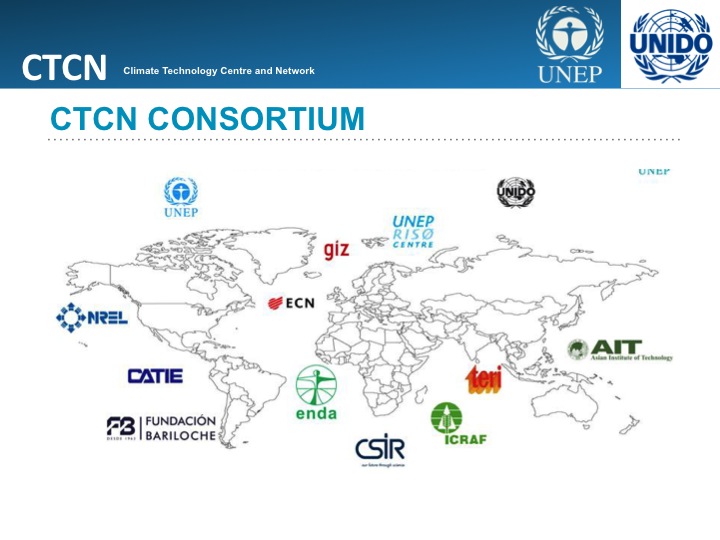The consortium is led by UNEP and includes UN Industrial Development
Organization (UNIDO), along with 11 international research and
development bodies, including AIT. CTCN will be the implementing arm of
the Technology Mechanism of the UN Framework Convention on Climate
Change (UNFCCC).
Discussing this and other modalities at the first Regional Expert
Dialogue in Bangkok on 21-22 May 2013 were AIT’s Dr. Shobhakar Dhakal
and Dr. Kyoko Kusakabe. Says Dr. Shobhakar who facilitated a session on
‘Barriers and priorities for climate technology transfer in Asia’, “A
key aim of the dialogue was to share ideas for operationalising
CTCN.”
Also on the agenda was a discussion on potential expectations of
various countries from CTCN and priority areas, Dr. Shobhakar added.
CTCN, which takes a demand-driven approach to both mitigation and
adaptation technology transfer, will be designating national agencies
to proactively identify context-specific needs in different countries.
While the first regional dialogue was held in Asia, similar dialogues
will be held in other continents. Following the regional dialogue, also
facilitated two sessions on ADB-UNEP Pilot Climate Technology Network
and Finance Center in Asia Pacific (AP-CTNFC).
CTCN seeks to establish an information platform for improved sharing
of knowledge related to climate technologies. It will provide data,
reports, and other resources to address the specific needs of
developing countries. It will also conduct regional and national
workshops on priority issues, entrepreneurship, and the development of
policies and programs to attract foreign direct investment.
Speaking at the launch the Achim Steiner, UN Under-Secretary General
and UNEP Executive Director stated: "Under UNEP's leadership, the
Climate Technology Centre and Network will work to accelerate the use
of new technologies in improving the lives and livelihoods of millions
of people in developing countries who are dealing with the impacts of
climate change on a daily basis."
"The consortium partners are already engaged in some 1500 activities
related to climate technologies in over 150 countries. Together, this
expertise and global reach can deliver scaled-up action on mitigation
and adaptation, and support the transition to an inclusive, low-carbon
green economy," he added.
"The world needs to urgently accelerate climate action across all
three central pillars of action - this means international, national
and business action. Technology is essential to enable developing
countries to pursue sustainable development and to grow their economies
in a low carbon, high resilient manner," said Ms. Christiana Figueres,
Executive Secretary of the United Nations Framework Convention on
Climate Change (UNFCCC).
“AIT will be honored to be a partner and it offers an opportunity for
the Institute to play a lead role in helping countries adopt new
technology mechanisms,” Prof. Sivanappan Kumar, AIT’s Acting Vice
President for Academic Affairs said. Prof. Kumar added CTCN has only
two partners in Asia – AIT and TERI in India. Importantly, AIT was the
Asian regional centre of excellence to the Technology Needs Assessment
initiative funded by the Global Environment Facility (GEF), and
coordinated by UNEP-Riso Centre, Denmark for both adaptation and
mitigation.
The creation of CTCN was initiated at the 2010 UN Climate Change
Conference in Cancun when countries agreed on a new Technology
Mechanism to improve the transfer of climate-related technology,
encompassing energy efficiency, renewable energy, early-warning
systems, and other fields. The formal decision to establish CTCN was
taken at the 2012 UN Climate Change Conference in Doha.
Cohosts of CTCN include United Nations Industrial Development
Organization (UNIDO), Asian Institute of Technology (Thailand),
Bariloche Foundation (Argentina), Council for Scientific and Industrial
Research (South Africa), The Energy and Resources Institute (India),
Environment and Development Action in the Third World (Senegal),
Tropical Agricultural Research and Higher Education Center (Costa
Rica), World Agroforestry Centre (Kenya), Deutsche Gesellschaft für
Internationale Zusammenarbeit (Germany), Energy Research Centre of the
Netherlands, National Renewable Energy Laboratory (United States), and
United Nations Environment Programme Risø Centre (Denmark).
More information on tCTCN is available at this link: http://www.unep.org/climatechange/ctcn/
The UNEP press release announcing the formation of CTCN can be viewed
at this link:
http://unep.org/newscentre/Default.aspx?DocumentID=2704&ArticleID=9418

